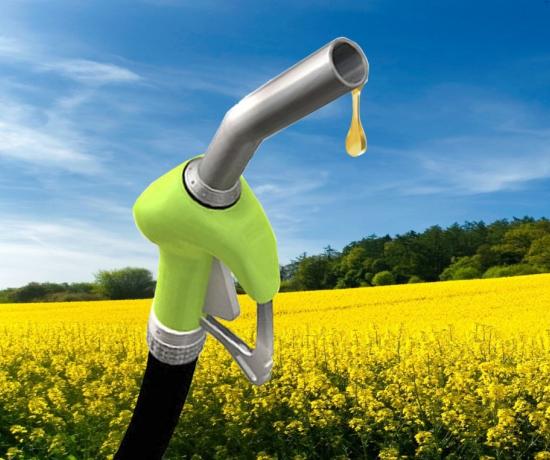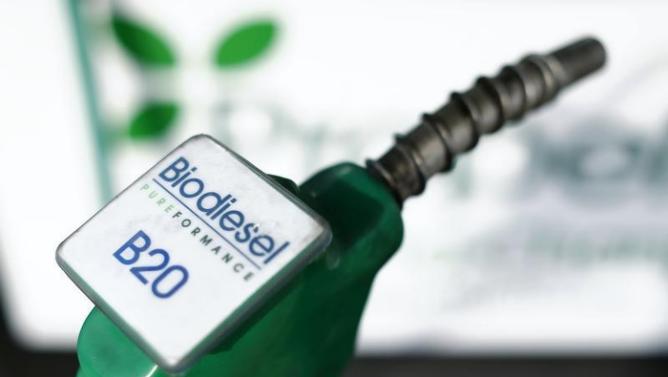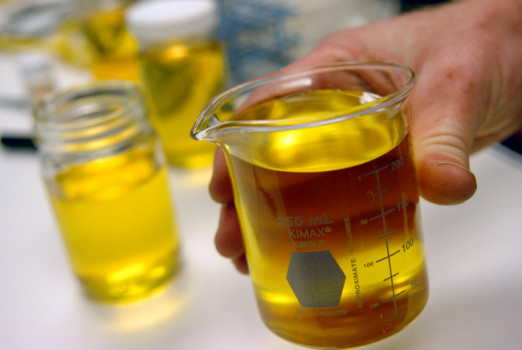Biodiesel is a cleaner-burning diesel fuel made from natural, renewable sources such as vegetable oils. It is not an experimental fuel—it has been proven in diesel engines over millions of road miles in many countries for decades, and has been approved for use by most diesel engine manufacturers.
Biodiesel demonstrates significant benefits to the environment and to public health. Biodiesel cuts exhaust emissions, minimizing black smoke, odour, and greenhouse gas emissions, air toxics, and particulates, and does not contribute to sulfur dioxide emissions (acid rain).

Biodiesel can be used with your current fueling infrastructure and in all modern diesel vehicles with no engine modifications necessary. Biodiesel’s high Cetane number, high flash point, and increased lubricity mean excellent engine performance, safety, with no impact fuel economy.
For this reason, it is easy to phase in and out, so you can maintain flexibility in technology deployment. And now that biodiesel-petroleum blends (B5) are reaching par with petroleum, biodiesel is rapidly becoming a mainstream alternative fuel in Canada.

Commercial Road Fleets
Biodiesel has been proven to perform similarly to diesel in more 40 million successful road miles in virtually all types of diesel engines. Currently more than 500 major fleets in the US use biodiesel blends. Its use in France, Germany, Austria and other European countries is even more widespread (over 2 billion litres will be consumed in 2005.)
Transit and School District Bus Fleets
Federal agencies have classified diesel exhaust as a probable human carcinogen. Components of diesel exhaust are genotoxic, mutagenic, and can produce symptoms of allergy, including inflammation and irritation of airways. There is no known safe level of exposure to diesel exhaust for children, especially those with respiratory illness.

Municipal & Government Fleets
By 2004, more than 500 major fleets in the US alone were using B20, including the U.S. Postal Service, numerous state DOT’s, U.S. Department of Agriculture (USDA), Florida Power and Light, US Marine Corps, the United States Air Force, San Francisco International Airport, and the National Aeronautics & Space Administration (NASA).
Biodiesel can be integrated seamlessly into existing fueling infrastructures with very little cost, and little training for employees. Several studies have shown that biodiesel is lower cost-per-mile than other alternative diesel fuels.
Heavy Machinery/Off Road Machinery
Biodiesel is suitable for use in heavy-duty off-road machinery. It is particularly well suited for use in urban areas. Heavy-duty diesel exhaust is often visibly opaque, or black; biodiesel improves opacity greatly.

Personal Cars and Light Trucks
In Europe, over 40% of personal vehicles are diesels. In France, diesel has a mandated 5% blend of biodiesel, both to improve air quality and to support the agricultural sector. Minnesota will have a 2% statewide blend by 2005.
Marine
The risk associated with fuel spills and the resulting liability has been an incentive for the use of biodiesel in commercial and government vessels (US Coast Guard, National Park Service, etc.) Biodiesel is non-toxic and readily biodegradable.
Lubricity Additive
Environment Canada has mandated a 97% reduction in the sulphur content of truck diesel fuel from 500 parts per million to 15 parts per million by 2006. Testing in Canada and elsewhere has confirmed that biodiesel can provide sufficient levels of fuel lubricity, even at blend levels below 1%.